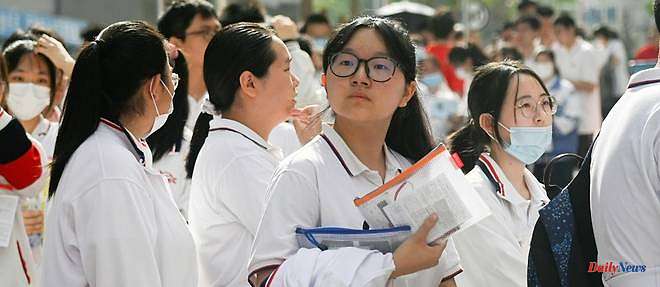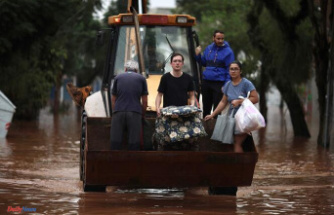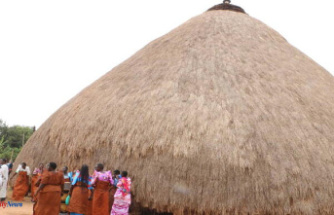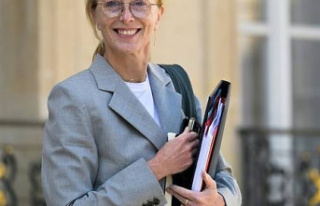It is the culmination of a school life spent preparing hard for the event: nearly 13 million Chinese high school students begin the very selective baccalaureate exams on Wednesday, the first to be organized since the abandonment of restrictions anti covid.
More than just a baccalaureate, the "gaokao" ("recruitment examination for higher education establishments") leads to a total of points which then determines in which university - prestigious or not - and which specialty the candidate can study.
"For the past four years, I got up at four in the morning every day to study, except Sundays," said Jesse Rao, a high school student from the metropolis of Shenzhen (southern China).
"I did everything I could, but I'm still a little stressed."
In Beijing on Wednesday morning, anxious parents, often dressed in red to attract luck, came to accompany their children to the gates of the examination centers.
"My son is quite relaxed. I think I'm more stressed than him," smiled Zhang Jing, a mother in a scarlet-colored qipao (traditional Chinese dress).
“I helped my son in his studies from the first year of primary school until high school,” she explains. "After the exam, I will be completely relieved."
The gaokao, whose format is slightly different depending on the province, includes tests in Chinese, English, mathematics, geography, history, chemistry, physics and even politics.
Many parents spend the equivalent of thousands of euros to enroll their children, from an early age, in private lessons in order to maximize their chances of success against other candidates at the time of the exam.
This year's contestants spent most of their high school years under restrictions imposed against the Covid-19 pandemic which were finally lifted in December.
"I had a hard time taking online classes last year," said Katherina Wang, a high school student from Shanghai (east China) who has suffered two confinements in the past two years.
"But our teachers have organized extra classes in the evenings and on weekends to help us catch up!"
The issue leads each year candidates to be fraudulently replaced by university students at the examination table, or to take with them electronic terminals to communicate with people outside.
To counter any cheating, several provinces have installed gates and scanners equipped with facial recognition technology to ensure that candidates are not replaced and do not take any cell phones, headphones or connected watches.
The gaokao lasts up to four days in some provinces, with tests lasting 60 to 150 minutes depending on the subject.
The maximum score is 750, with a score above 600 usually required to enter the most prestigious universities.
Few, proportionally, will succeed in entering these elite establishments. Last year, for example, only 3% of candidates from Guangdong province (south), the most populous in the country, obtained a score above 600.
If their result does not allow them to access the university of their choice, candidates also have the option of trying their luck again the following year.
In total, 17% of those who took the gaokao in 2021 took it again in 2022.
"If I don't get the result I hope for, I will try again," Benjamin Zhu, a high school student from the big city of Guangzhou (south), told AFP.
07/06/2023 18:32:04 - Beijing (AFP) - © 2023 AFP












